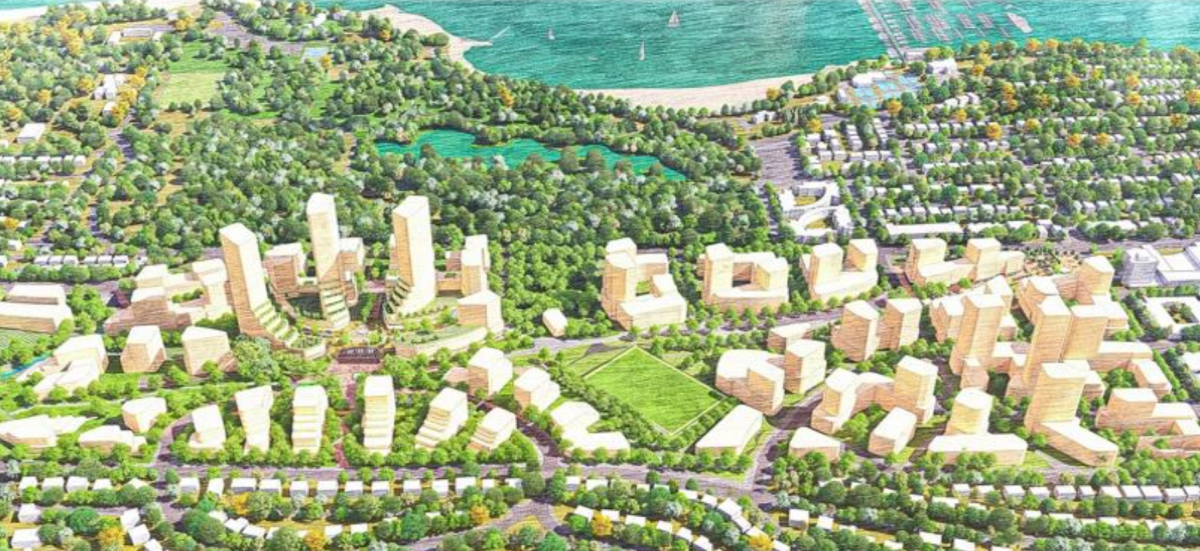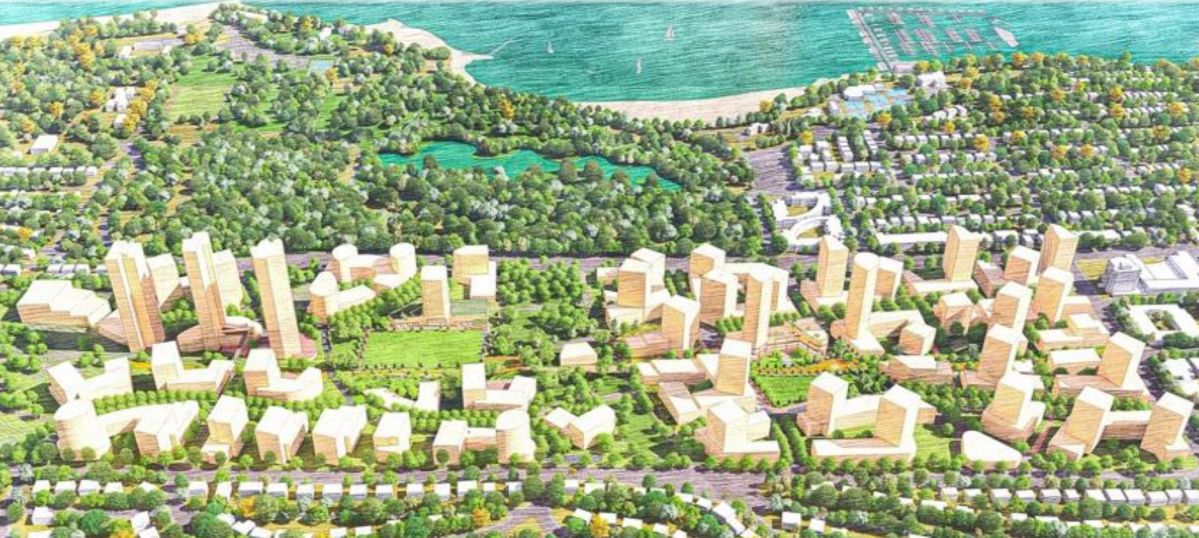This article has been updated with more information.

The fight over the future of Vancouver’s Jericho Lands is heating up, with residents of the West Point Grey neighbourhood saying the city’s proposed redevelopment plans don’t fit with the area and could set a bad precedent for other communities.
The city is currently mulling two proposed concepts for the 90-acre lands, which are owned by local First Nations and have been subject to years of debate over their future.
Both concepts include high-rise towers as part of a mix of smaller residential and commercial buildings, along with park space and community services. If approved, the future development would house between 15,000 to 18,000 people — more than doubling the population of West Point Grey, which sits at around 13,000 residents.
“We’re not saying don’t build this development … but we do want to see something that’s reasonable and that makes housing that we require,” said Murray Hendren, a member of the Jericho Coalition that is leading the opposition against the current plans.
“You could call this a battle for the heart and soul of Vancouver.”
The lands are currently co-owned by the Musqueam, Squamish and Tsleil-Waututh First Nations and the Canada Lands Company, a federal Crown corporation, after purchasing them from the B.C. government in 2016.
Last October, after years of public consultation, the city unveiled two concepts for the site’s redevelopment, dubbed the Eagle and the Weave. Both feature three high-rise towers and mid-level buildings that, in concept drawings, stand in stark contrast to the single-family homes that dominate West Point Grey.
The Jericho Coalition’s own rendering of the redevelopment — based, it says, on the city’s own specifications — suggests the towers in particular will create long shadows over much of the neighbourhood, which is close to Jericho Beach. That’s despite the development sitting north of much of the community.
“This is something that will dominate the entire Vancouver landscape and cityscape in a way which we’ve never seen before,” said Bill Tieleman, a spokesperson for the Jericho Coalition.

Get daily National news
“Jericho Beach … is a recreation area for the whole city and all of Metro Vancouver, and it’s going to be just completely dwarfed and overshadowed by these towers if they’re built.”
City council is expected to consider a final staff report on the proposed redevelopment, which will be undertaken in partnership with the three First Nations, sometime this year.
Yet council has already sent signals that it is moving in a pro-density direction not just for the West Side but the city at large.
Last week, it approved a staff report on a future SkyTrain extension to the University of British Columbia that recommends one of the stations along the route be built directly within the Jericho Lands. Dozens of West Point Grey residents voiced opposition to that proposal.

And on Tuesday, the city released a draft of the long-in-the-works Vancouver Plan, which envisions the future of city land use and development up to 2050 by creating more “complete neighbourhoods” similar to the development concepts being considered for the Jericho Lands.
The Vancouver Plan says more housing — particularly affordable options close to economic opportunities and services in all areas of the city — is desperately needed to accommodate an anticipated 260,000 new residents over the next 30 years.
Housing advocates say areas like Jericho will only benefit from more options for tenants and homebuyers, given the density found elsewhere in the city.
“When you’re dealing with a potentially very large population at Jericho … actually it would be wrong, it would be very bad, if they didn’t (build this development),” said Gordon Price, an urban planner and former city councillor.
Tieleman disagrees.
“I don’t think anyone in any part of the city wants to see 38-storey towers and a density two-and-a-half times of the West End in their neighbourhood,” he said.
- Snowmobilers fall through ice, bodies recovered days later after lake refreezes: RCMP
- Boundary Bay Airshow cancelled for 2026 after nearly two decades
- Hearing on police-involved death of Myles Gray resuming after obscenity led to delay
- ‘Makes me feel angry’: Lapu Lapu victim questions where donation money went
Tieleman and Hendren say they are not opposed to more housing being built in West Point Grey or elsewhere, but argue residential towers are incompatible for communities like theirs, which are dominated by large detached homes and prominent green space.
“Vancouver does need housing, there’s no question — but what kind of housing do we need?” Hendren asked.
“Do we need a sea of luxury, high-rise towers? Or do we need more ground-oriented, family-oriented housing? I think families are the heart and soul of the city, and without families you don’t have a city, period.”
Stuart Smith, a director of Abundant Housing Vancouver, says those housing options should include opening up existing single-family homes to more tenants — including in affluent areas like West Point Grey, which sits close to UBC.
“We should let people who own houses do more with them, whether that’s renting more rooms out, whether that is shared or collective housing,” he said.
“We should also give them the option to build a larger structure or make an addition, or yes, knock it down and build a new apartment building. When you offer all of those options, that’s when I think you’ll see some real movement.”

The City of Vancouver did not respond to requests for comment about the Jericho Coalition’s concerns.
The city has said in the past that more public consultation will be done on the future of the Jericho Lands before final approval, which will only come after further votes on rezoning for the area.
If approved, construction on the development could begin in 2025.
Yet with an election around the corner this fall, Tieleman says he and other concerned residents are committed to making the Jericho Lands and similar development plans a key issue for candidates.
“Vancouver is in a battle for its soul, and the developers are winning right now, not citizens,” he said.
— with files from Paul Johnson and Grace Ke











Comments
Want to discuss? Please read our Commenting Policy first.